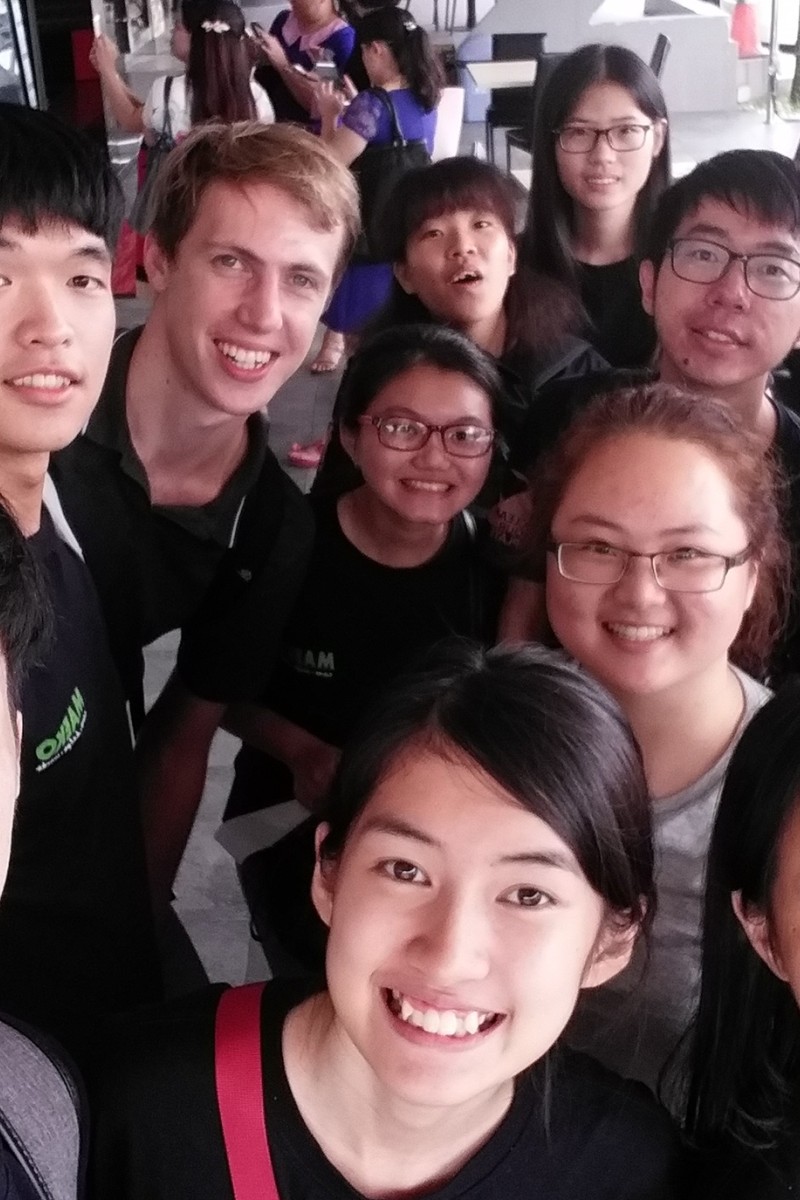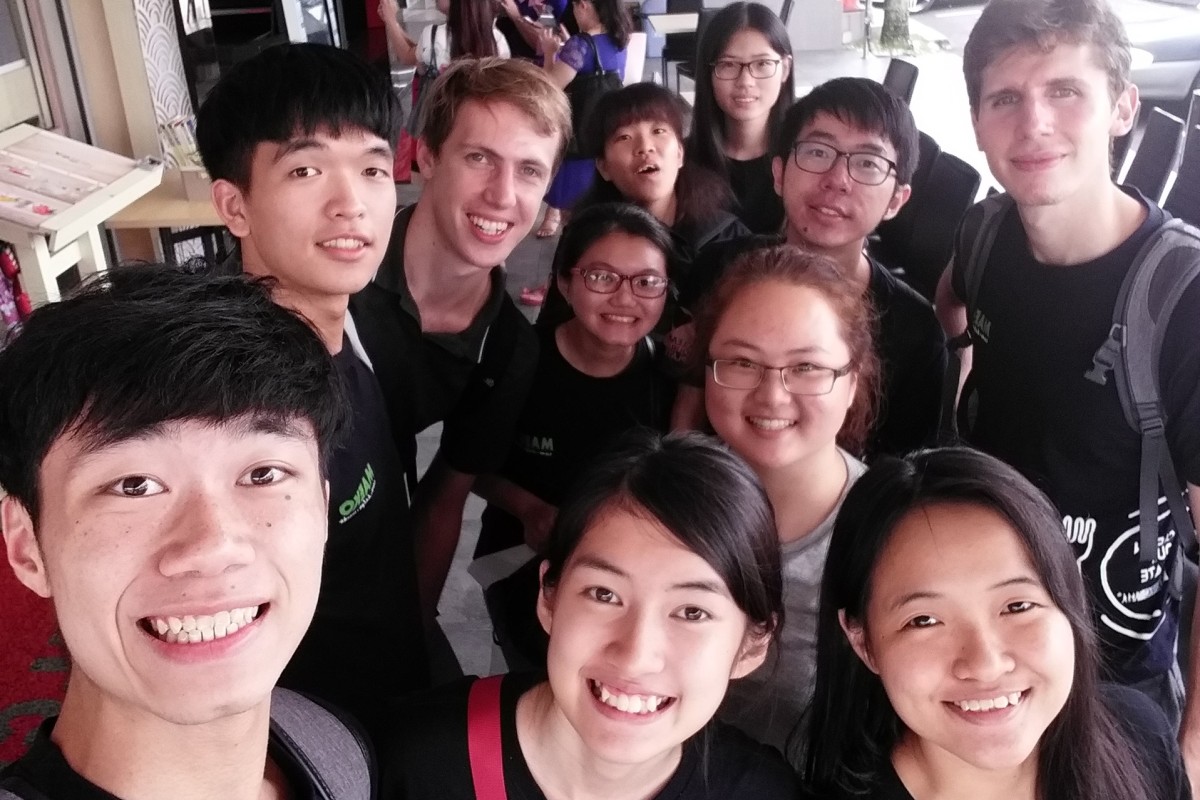
Language barriers won't stop you making new friends if you’re willing to take the first step
As a CityU student found out during a volunteer trip to Malaysia, all it takes is a bit of courage at the beginning
 Making friends is easy if you take the plunge and start a conversation, as Yvonne (bottom middle) found out during a volunteering trip to Malaysia.
Making friends is easy if you take the plunge and start a conversation, as Yvonne (bottom middle) found out during a volunteering trip to Malaysia.Last summer, I went to Malaysia as a volunteer for six weeks. There were Vietnamese, Italian, Estonian, Japanese and Chinese people working on the project. We only had one language in common: English. And none of us were advanced English speakers.
British travel writer Pico Iyer once wrote: “We travel, initially, to lose ourselves, and we travel, next, to find ourselves.” Well, my six-week journey made me realise one thing: I am not a very considerate person.
During the first week, there was a language barrier between myself and one of the other volunteers. Let’s call her Anne. She spoke English with a strong accent and I could hardly understand what she was saying. Maybe she was not used to my accent, either. She constantly asked me to repeat myself.
I found that talking to her was very frustrating, so I thought the best way to avoid the problem was to not talk to her.
It’s quite common to use Uber in Malaysia, and so it became our everyday mode of transport. Once, Anne and I were the only people in back of the car. We looked at each other and although both of our lips twitched slightly, we didn’t say a word.
The atmosphere was so awkward that I tried to hum songs to hide my embarrassment. After five minutes, I tried to break the ice.
“Your bag is so cute!”
“What?”
“I said, your bag is cute.”
“Oh, thank you.”
That was the end of the conversation. For the first two weeks, a wall existed between us, built by us.
But then I realised neither of us are native English speakers. So maybe I could speak more slowly and listen more carefully. Once I tried doing that, things changed. It was amazing because we became the best of friends. All it took was a little patience and understanding.
“You seem different after your trip, Yvonne,” a friend told me after I got back home. Then I realised that it’s true when people say a person who goes abroad is a different person after they return home.
A few months later, I went to Vietnam and met Anne again. We had an excellent time. The language barrier wasn’t a problem any more; it was all in our minds.